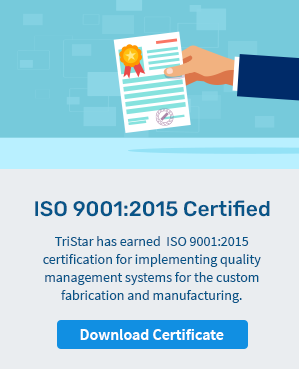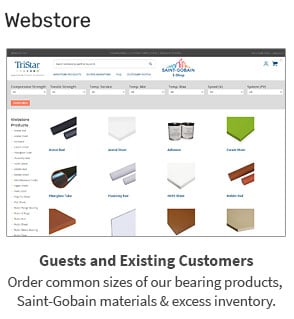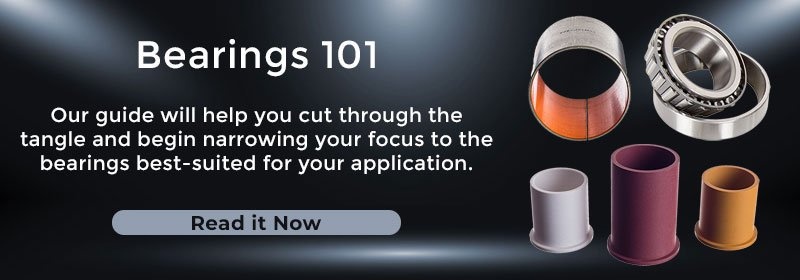
We recently spoke with a marine designer who wanted to explore bearing options for luxury yachts. Like many engineers, she was initially hesitant to replace traditional metal or bronze marine bearings with newer composite materials.
But once she learned that composite marine bearings require no grease, will never corrode, and are certified by the American Bureau of Shipping (ABS), her hesitation quickly turned to enthusiasm.
That conversation led to a new partnership, and a better performing vessel.
Why Choose Composite Bearings for Marine Applications?
Composite marine bearings have become the gold standard for modern vessel design, offering longer service life, zero corrosion, and maintenance-free performance in saltwater environments.
Unlike bronze or stainless-steel bushings, composites are made from fiber-reinforced resins with built-in lubricants. This structure makes them immune to saltwater corrosion and completely self-lubricating, eliminating the need for constant greasing and maintenance schedules.
In short:
- No grease
- No corrosion
- No downtime
For marine designers, that means cleaner operation, lower long-term maintenance costs, and more reliable equipment performance.
Expert Note from Tristar: Corrosion is the silent enemy of marine machinery. Tristar’s composite and polymer bearings—like Ultracomp® and CJ—offer proven corrosion resistance, high compressive strength, and ABS certification for shipboard use. By replacing bronze bushings with self-lubricating composites, yacht builders and offshore engineers can extend bearing life by years while simplifying maintenance.
The Challenge: Metal Bearings in a Marine Environment
Even with coatings and grease, metal bearings inevitably corrode in saltwater. Corrosion and pitting lead to increased friction, heat buildup, and eventual bearing seizure.
Bronze and stainless-steel bearings provide decent performance for a while, but they require constant greasing and inspection to prevent oxidation. This maintenance burden adds significant cost over time; especially for luxury yacht builders, naval engineers, and offshore equipment operators who demand zero tolerance for failure.
By contrast, composite bearings provide superior dimensional stability, UV resistance, and chemical durability; all without a single drop of oil or grease. They are even installed aboard America’s Cup vessels!
Where will you find composite bearings on luxury yachts?
1. Transom Doors & Pivot Points
Sliding decks, transom hatches, and water-level doors deploy more smoothly with composite bearings, which remain dimensionally stable in liquid. They won’t swell, corrode, or seize under continuous water exposure.
2. Bow and Stern Thrusters
Composites resist saltwater corrosion and maintain tight tolerances, improving propulsion efficiency and maneuverability over time.
3. Gear Pumps
In marine gear pumps, composites replace both rolling element bearings and bronze sheaves, providing longer-lasting, quieter operation without grease contamination.
4. Rudder Bearings
Ultracomp® materials deliver vibration damping and shock absorption, creating smoother rudder response in rough seas.
5. Dockside Cranes, Davits, and Winches
Even in long-term dockside exposure, composite bearings never rust or pit. They provide longer service life for sheaves, pulleys, and lifting equipment.
6. UV Resistance
An often-overlooked advantage, composite materials resist damaging UV rays, preventing degradation and embrittlement under constant sunlight.
Expert Note from Tristar: Tristar’s marine-grade composites are specifically engineered for UV, saltwater, and chemical resistance. Each formulation, such as Ultracomp® UC400 (MoS₂-filled polyester) or CJ composite journal bearings, is tested under real-world marine conditions to ensure long-term reliability without maintenance.
Industry Certifications That Matter
Some Tristar composite materials are certified by the American Bureau of Shipping (ABS) a global standard for shipboard component reliability and safety.
ABS certification means these bearings are qualified for use in critical marine systems, including:
- Rudder bearings
- Stern tube assemblies
- Deck cranes
- Hydraulic pivots
This assurance gives designers and builders peace of mind knowing their components meet stringent marine safety standards.
Expert Note from Tristar: ABS certification reflects Tristar’s commitment to material integrity and quality assurance. Our composites undergo rigorous testing for compressive load, dimensional stability, and environmental endurance, ensuring each bearing meets the demands of long-term marine operation.
The Bottom Line: No Grease. No Corrosion. No Compromise.
For yacht builders, naval engineers, and offshore designers, composite bearings offer industry certified unmatched reliability in environments where metal fails.
They deliver:
- Zero corrosion in saltwater and chemical exposure
- Self-lubrication with no grease maintenance
- ABS certification for marine assurance
- UV and impact resistance
- Longer component lifespan and lower operational costs
The result? Quieter, cleaner, longer-lasting vessels that uphold the highest performance and quality standards.
Ready to Upgrade Your Bearings?
- Review our Ultracomp® and CJ marine bearing materials for your vessel.
- Learn more in our Bearings 101 Guide or our Marine Bearing Case Studies.
- Reach out to our marine bearing experts to review composite bearings for your marine application!
With Tristar composite marine bearings, you’ll get no grease, no corrosion — just superior performance.









